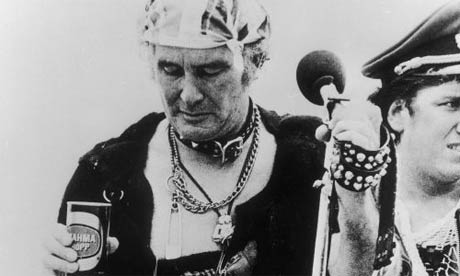Ronnie Biggs of Great Train Robbery infamy–which morphed in time into pure fame–was good at robbing trains, escaping from prison and eluding authorities, but he was a genius at the ways of cultivating celebrity before such things were common knowledge. From Margalit’s Fox’s New York Times obituary of Biggs:
“Mr. Biggs’s enduring reputation stemmed not so much from the heist itself as from what happened afterward. Tried and convicted, he escaped from prison and became the subject of an international manhunt; spent the next 36 years as a fugitive, much of that time living openly in Rio de Janeiro in defiance of the British authorities; and enjoyed almost preternatural luck in thwarting repeated attempts to bring him to justice, including being kidnapped and spirited out of Brazil by yacht.
The fact that the robbery happened to take place on Mr. Biggs’s birthday also did not hurt.
During his years at large, Mr. Biggs, aided by the British tabloid press, cultivated his image as a working-class Cockney hero. He sold memorabilia to tourists, endorsed products on television and recorded a song (‘No One Is Innocent’) with the Sex Pistols, the British punk band.
As much as anything, Mr. Biggs’s story is about the construction of celebrity, and the ways in which celebrity can be sustained as a kind of cottage industry long after the world might reasonably be expected to have lost interest.”
________________
“No One Is Innocent”:
Tags: Margalit's Fox, Ronnie Biggs


